John Rogers Searle Quotes & Sayings
Enjoy the top 8 famous quotes, sayings and quotations by John Rogers Searle.
Famous Quotes By John Rogers Searle
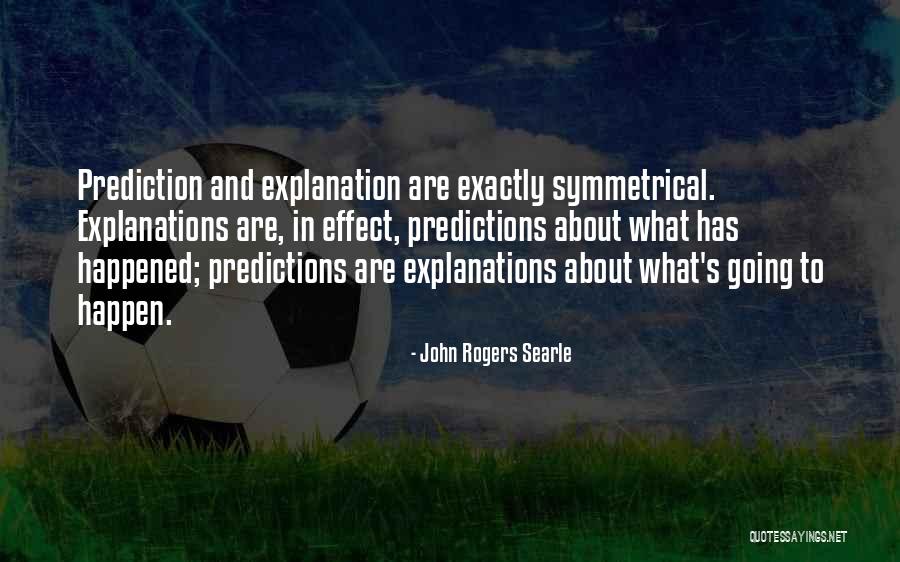
Prediction and explanation are exactly symmetrical. Explanations are, in effect, predictions about what has happened; predictions are explanations about what's going to happen. — John Rogers Searle
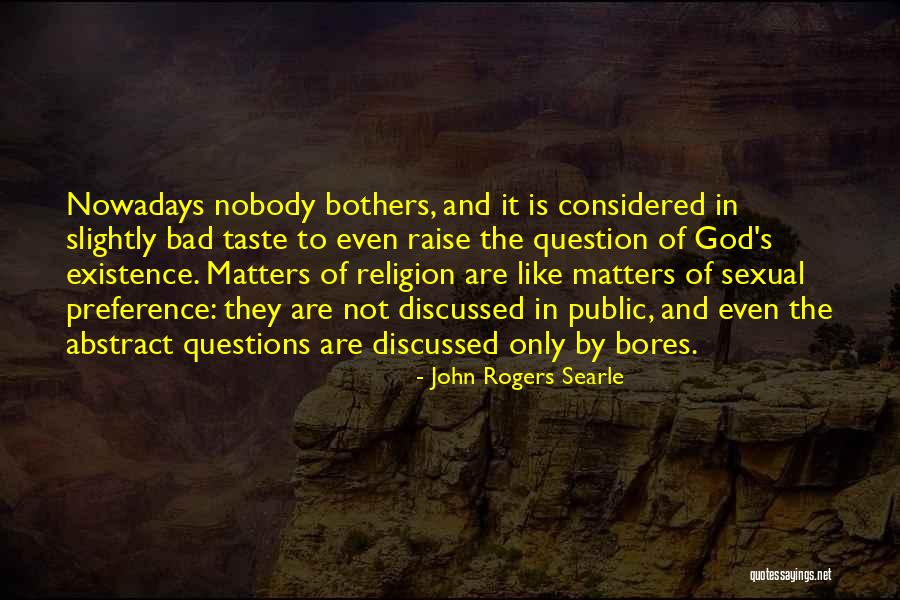
Nowadays nobody bothers, and it is considered in slightly bad taste to even raise the question of God's existence. Matters of religion are like matters of sexual preference: they are not discussed in public, and even the abstract questions are discussed only by bores. — John Rogers Searle
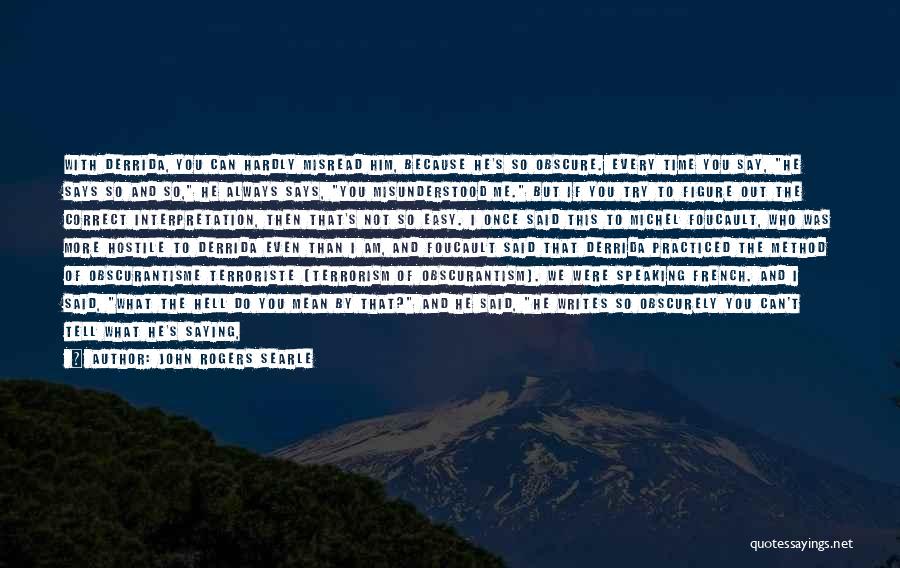
With Derrida, you can hardly misread him, because he's so obscure. Every time you say, "He says so and so," he always says, "You misunderstood me." But if you try to figure out the correct interpretation, then that's not so easy. I once said this to Michel Foucault, who was more hostile to Derrida even than I am, and Foucault said that Derrida practiced the method of obscurantisme terroriste (terrorism of obscurantism). We were speaking French. And I said, "What the hell do you mean by that?" And he said, "He writes so obscurely you can't tell what he's saying, that's the obscurantism part, and then when you criticize him, he can always say, 'You didn't understand me; you're an idiot.' That's the terrorism part." And I like that. So I wrote an article about Derrida. I asked Michel if it was OK if I quoted that passage, and he said yes. — John Rogers Searle

In general, I feel if you can't say it clearly you don't understand it yourself. — John Rogers Searle
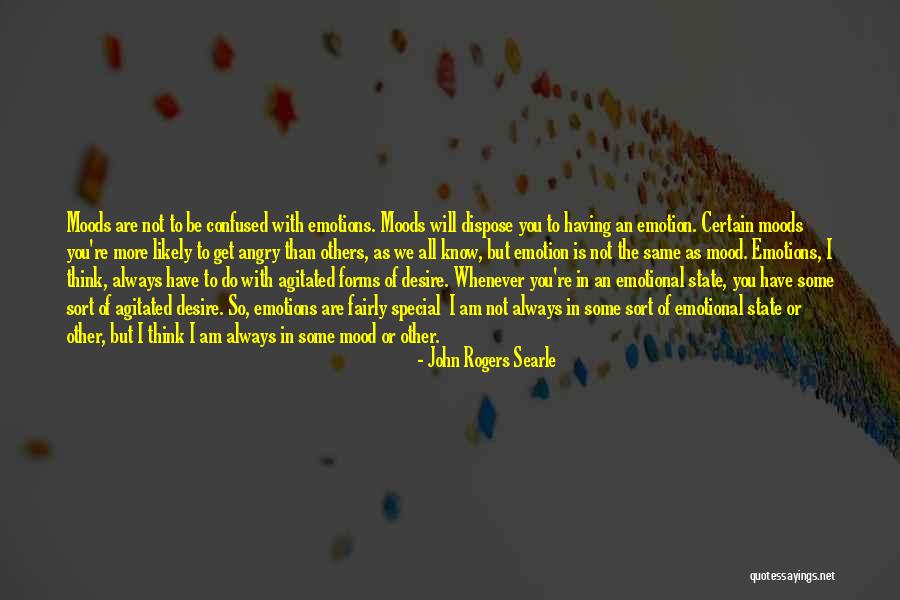
Moods are not to be confused with emotions. Moods will dispose you to having an emotion. Certain moods you're more likely to get angry than others, as we all know, but emotion is not the same as mood. Emotions, I think, always have to do with agitated forms of desire. Whenever you're in an emotional state, you have some sort of agitated desire. So, emotions are fairly special
I am not always in some sort of emotional state or other, but I think I am always in some mood or other. — John Rogers Searle
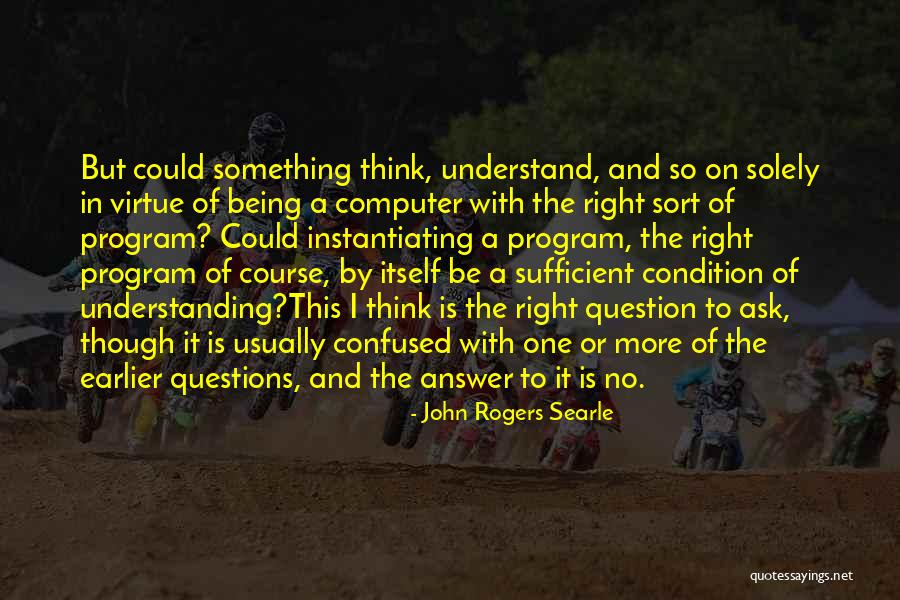
But could something think, understand, and so on solely in virtue of being a computer with the right sort of program? Could instantiating a program, the right program of course, by itself be a sufficient condition of understanding?
This I think is the right question to ask, though it is usually confused with one or more of the earlier questions, and the answer to it is no. — John Rogers Searle
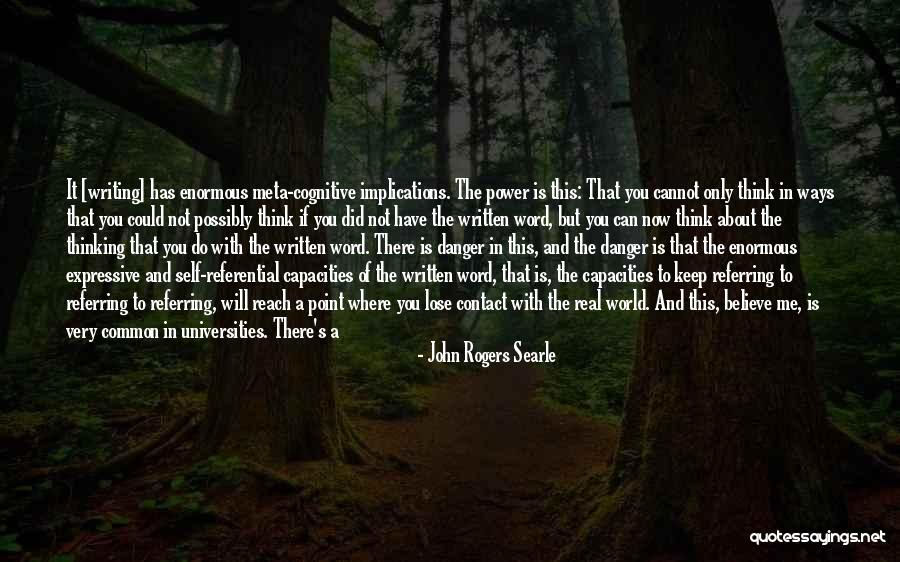
It [writing] has enormous meta-cognitive implications. The power is this: That you cannot only think in ways that you could not possibly think if you did not have the written word, but you can now think about the thinking that you do with the written word. There is danger in this, and the danger is that the enormous expressive and self-referential capacities of the written word, that is, the capacities to keep referring to referring to referring, will reach a point where you lose contact with the real world. And this, believe me, is very common in universities. There's a technical name for it, I don't know if we can use it on television, it's called "bullshit." But this is very common in academic life, where people just get a form of self-referentiality of the language, where the language is talking about the language, which is talking about the language, and in the end, it's hot air. That's another name for the same phenomenon. — John Rogers Searle
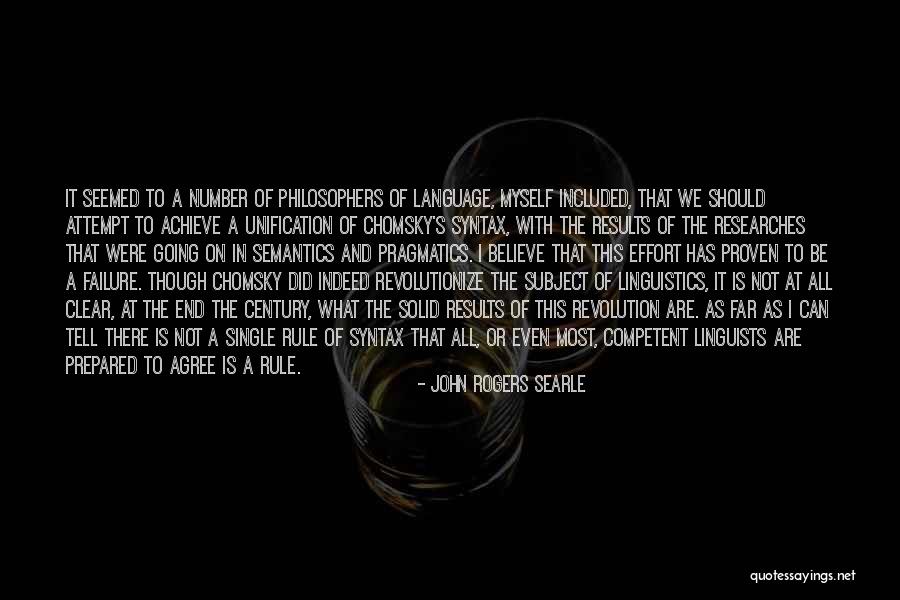
It seemed to a number of philosophers of language, myself included, that we should attempt to achieve a unification of Chomsky's syntax, with the results of the researches that were going on in semantics and pragmatics. I believe that this effort has proven to be a failure. Though Chomsky did indeed revolutionize the subject of linguistics, it is not at all clear, at the end the century, what the solid results of this revolution are. As far as I can tell there is not a single rule of syntax that all, or even most, competent linguists are prepared to agree is a rule. — John Rogers Searle





